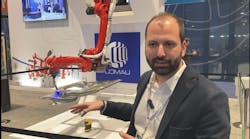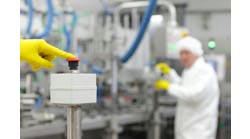Jim Montague is the executive editor for Control. Email him at [email protected].
I usually avoid State of the Union addresses like the plague. They're too full of vague generalities and unspecific promises that aren't kept anyway.
Still, like Pavlov's dog, I'm trained to salivate when I hear words or phrases close to any beat I'm covering. So when I heard that President Barack Obama was highlighting "high-tech manufacturing hubs" in his State of the Union address on Jan. 28, I checked out the many transcripts available online.
SEE ALSO: Promises of Reshoring: Are They True, or Just False Hope?
About a third of the way in, President Obama stated, "We also have the chance, right now, to beat other countries in the race for the next wave of high-tech manufacturing jobs. And my administration's launched two hubs for high-tech manufacturing in Raleigh, N.C., and Youngstown, Ohio, where we've connected businesses to research universities that can help America lead the world in advanced technologies. Tonight I'm announcing we'll launch six more this year. Bipartisan bills in both houses could double the number of these hubs and the jobs they create. So get those bills to my desk and put more Americans back to work."
Very nice. As usual, still fairly general and unspecific and with few details on what the existing centers do, how the new ones train participants, and how they help U.S. manufacturing compete globally. Granted, it's probably impossible to cram these and all other deserving details into one speech, but these questions have to be answered at some point for the words to have actual meaning.
To me, "high-tech manufacturing hub" sounds like a very short hop, skip and jump to process control and automation. I'm playing favorites in favor of my beat, of course, but I think most politicians and business leaders have little or no idea what's really involved in making real high-tech manufacturing a living, breathing, profitable reality. If they did, we probably wouldn't have spent the past few decades letting Japan make all the VCRs, allowing China take over our rare-earth metals production and frittering away so many other opportunities for the "short-end money."
To their credit, the first of the 45 planned hubs in the National Network for Manufacturing Innovation (NNMI) has been up and running for about a year and a half. Located in Youngtown, it's called America Makes, the National Additive Manufacturing (AM) Institute, and reports that it's a public-private partnership "working together to innovate and accelerate AM and 3-D printing (3DP) to increase our nation's global manufacturing competitiveness." The second, the Next Generation Power Electronics Innovation Institute, was unveiled by President Obama few days before his speech, and will be located at North Carolina State University. It will focus on making energy-efficient, high-power electronic chips and devices by making "wide bandgap semiconductor technologies cost-competitive with current silicon-based power electronics in the next five years."
Very commendable, but these two hubs and especially those in the future will need plenty of help if they're going to create jobs in large numbers, and that help is not going to come from the usual pie-in-the-sky boosters. God knows, you can't leave it up to politicians, marketers, (ahem) editors and other hucksters. These manufacturing hubs and all efforts like them will fail if you do.
Once again, process automation engineers and factory automation engineers are going to have get out from behind their traditional support roles, do some critically needed self-promotion, and remind everyone else what "high-tech manufacturing" really means and what it requires to succeed and generate jobs in real applications. I know this isn't easy. More than one engineer has told me, "I didn't get into engineering to talk to people."
Unfortunately, the stakes are too high for engineers, machine builders and other well-informed technical professionals to let their usual reluctance to hold them back. They and we must reach out from our side where high-tech really lives, speak out loudly about what's needed, participate where possible and even do a little evangelizing and old-style carnival barking to support these efforts and draw others to them. The much-feared brain drain and much-needed next generation of engineers won't grow up educated, aware and strong without support, encouragement and public advocacy from all sides by every present or retired engineer, machine builder or technician able to raise their voice.
So if you end up with one of these hubs or even something similar nearby, I'd recommend that you investigate, find out what it's all about and get involved in whatever capacity you can. At the very least, it'll be more interesting and useful than watching another YouTube video or playing another game of Candy Crush, right?






